'I don't know who I am as not a cyclist' - First women's Paris-Roubaix winner Lizzie Deignan speaks openly about her path to retirement and beyond
'I have to be open-minded to what comes next and not put myself in a box now, because I just don't know. This has been my identity for the last 20 years'
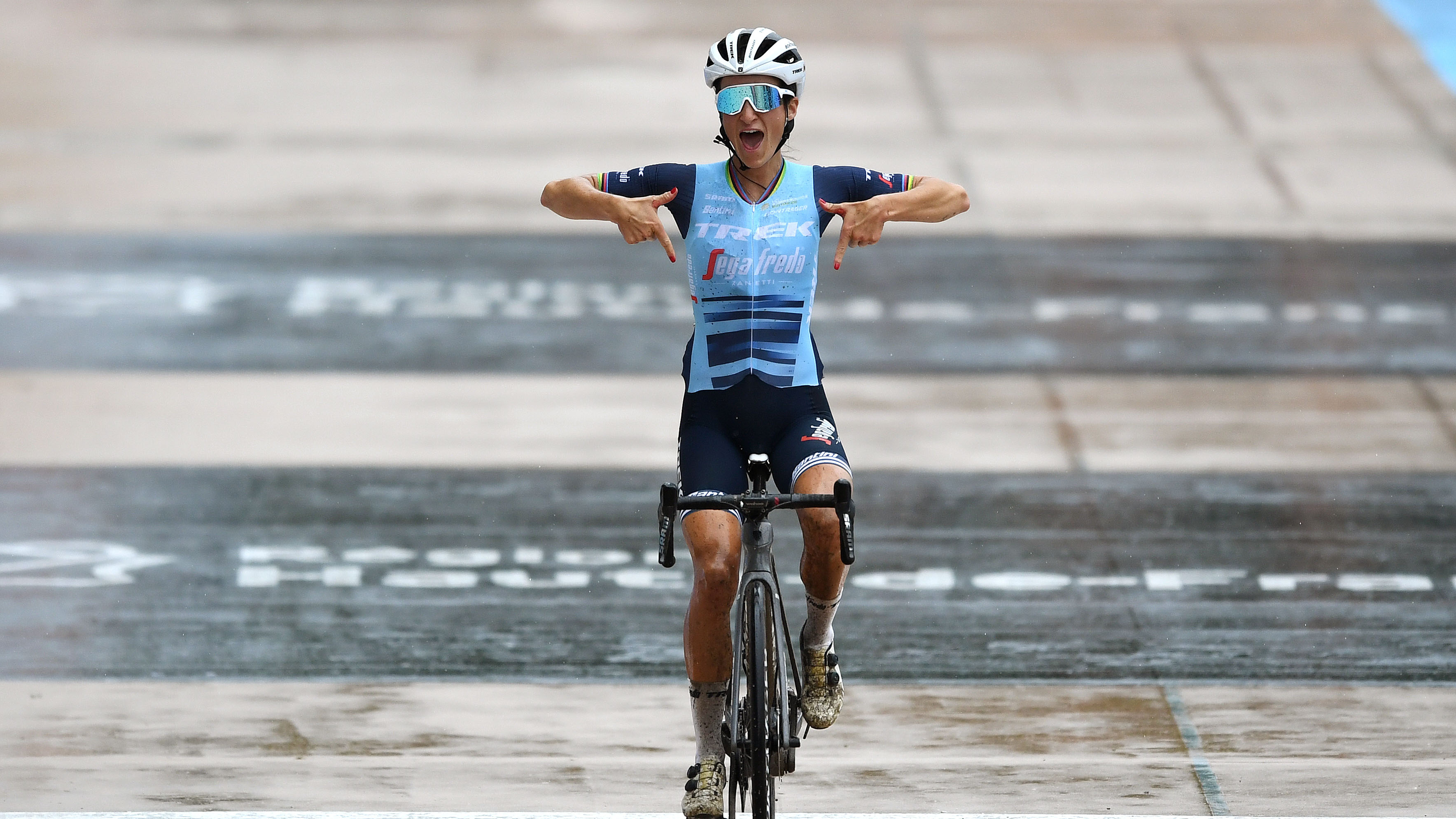
"I was tempted to be one and done; 100% record," Lizzie Deignan laughs as she contemplates competing at the women's Paris-Roubaix for the first time since she wrote her name into cycling's history books as the winner of the inaugural event five years ago – forever the first Queen of the Classics.
A lot has happened in those intervening years; in her family life, cycling career, and sport as a whole. The time that has passed has a way of simultaneously feeling like the blink of an eye and a distant memory.
She is one of Great Britain's most well-known athletes, a household name, because of her success across twenty years in professional cycling. Her long list of accolades includes an Olympic medal, a world title, and three Monument victories.
But looking back, Deignan says her Paris-Roubaix triumph in 2021 became the turning point in how the world outside of the cycling bubble views her achievements.
"The thing that stands out to me is that when I meet cycling fans or strangers now, who realise who I am, they always talk about Paris-Roubaix," Deignan says.
"Although it was only five years ago, it was one of the first races people could watch. People never talk to me about my Tour of Flanders win or Strade Bianche win. It's almost like they didn't happen but, obviously, they just weren't on TV.
"For me, it was kind of about progress. It was a real turning point in cycling; that is what I have realised from that win because it's the win that people talk to me about."
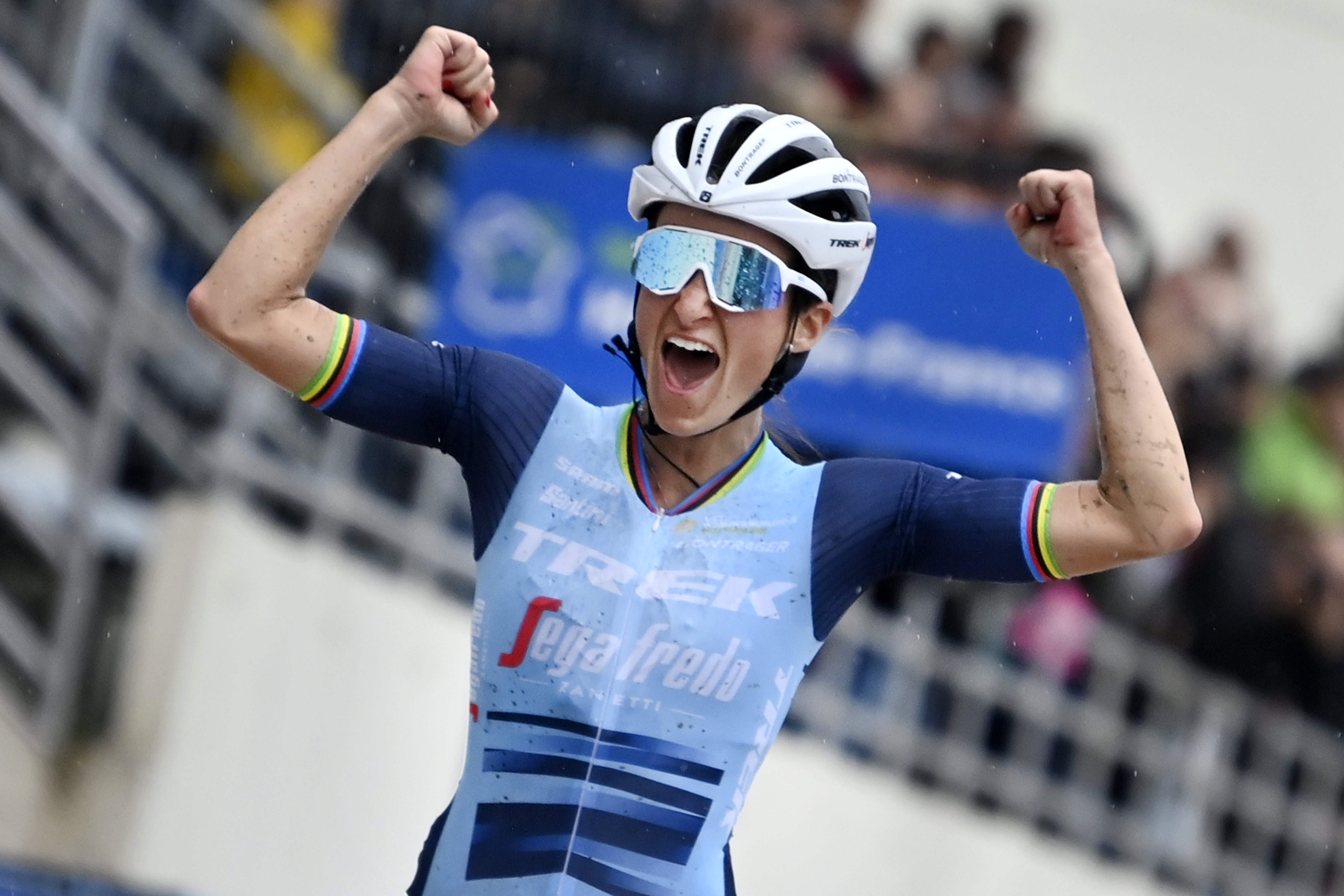
As the women's peloton heads into its fifth edition at the Paris-Roubaix Femmes, an event with more than 100 years of rich history in men's racing, it's hard not to embrace this significant milestone in women's cycling.
Creating space for change, growth, and professionalism in cycling for women has been a slow process and a hard-fought effort by many over the years. So, a massive moment like the inclusion of women at Paris-Roubaix was nothing short of monumental. There is no denying that the momentum for equality in cycling has picked up steam over the last five years.
Most notably, the introduction of maternity leave and mandatory minimum salaries for women on top-tier teams, mandatory live television for Women's WorldTour events which boasted greater access for the sport's die-hard fans plus a booming new audience, and then there was the return of the women's Tour de France — Deignan has been involved at every step of the way.
"It's always been intentional. It's nice that I'm at a stage of my career where I am no longer pushing for equality. It's important to acknowledge that there is room to improve and a ways to go, but it's no longer at the forefront of every conversation I have around my sport," Deignan says.
"From being a junior until five years ago ... that was what I always talked about. I remember the press conference after my silver medal in the London Olympics [2012], and that was what I spoke about: the inequality we were facing.
"I think there are so many women who have been involved, organisations and volunteers and people who have given up their time to push the sport forward, they should be the face of it, rather than me. I'm incredibly grateful to those people who have helped get us into the position we are in today."
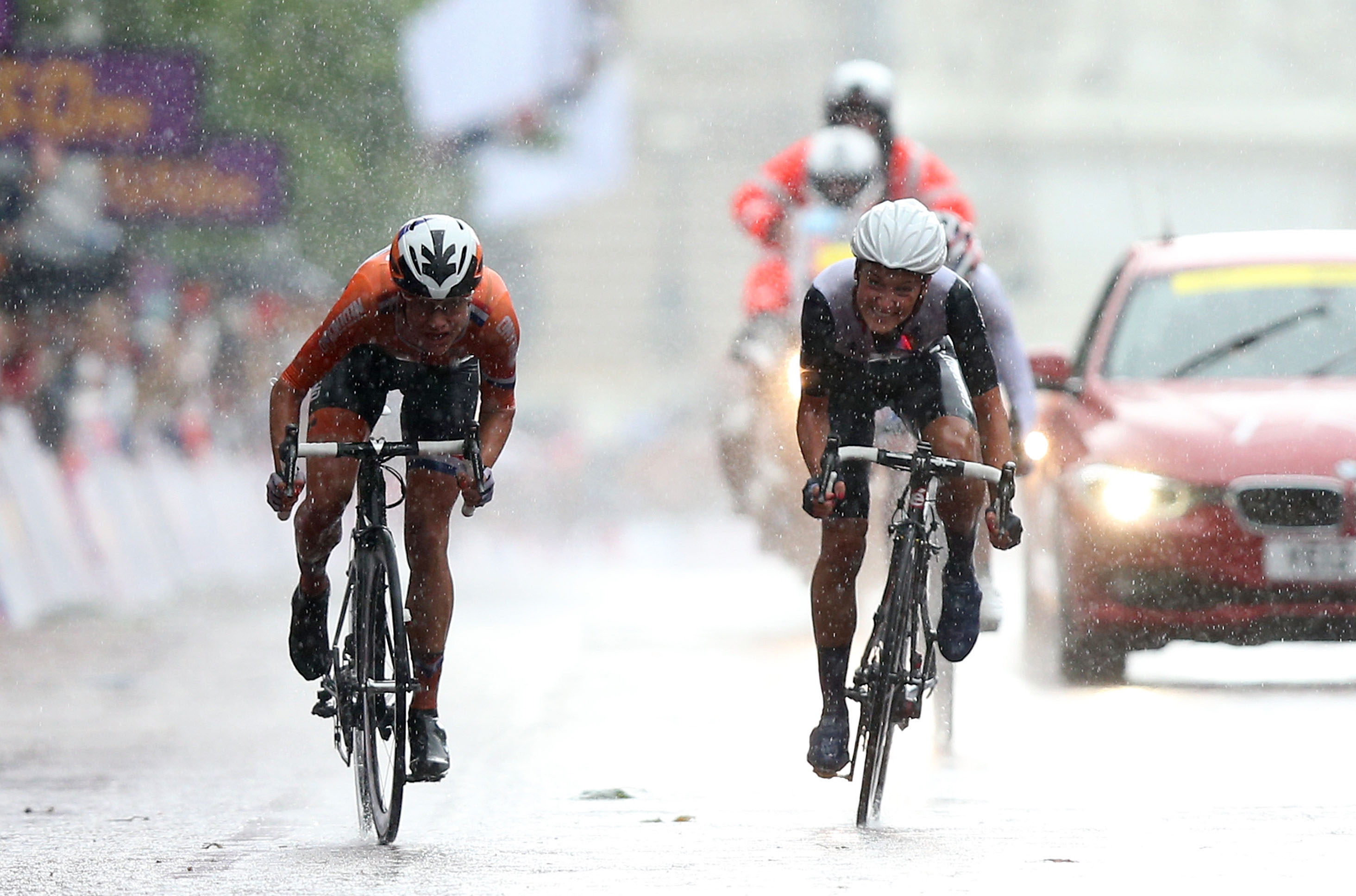
Deignan acknowledges that while her more recent accomplishments have been celebrated much more than her earlier ones, primarily due to increased television coverage of women's racing and other more recent structural changes, there are women who have come before her who have been equally as successful but have not had the same opportunities or recognition.
An example is her sports director, Ina Teutenberg, who has been a leader in the sport for decades and had a palmares of over 200 career victories before she retired from racing in 2013.
"I'm extremely fortunate to have had my career when I've had it. I appreciate that I started in an era with little pressure and no external pressure. I wasn't under any pressure from the media or team and had little expectations," Deignan says.
"I'm grateful that's how it started because it is a daunting world to go through now, from junior to elite cycling. I appreciate the growth that I've had along the way.
"I'm also proud of the progress in the latter part of my career because I've benefited from that. There are riders I race with and people like Ina, who was a phenomenal bike rider and won many races but will never get the recognition I have gotten. So, I feel grateful to have had the career when I have had it."
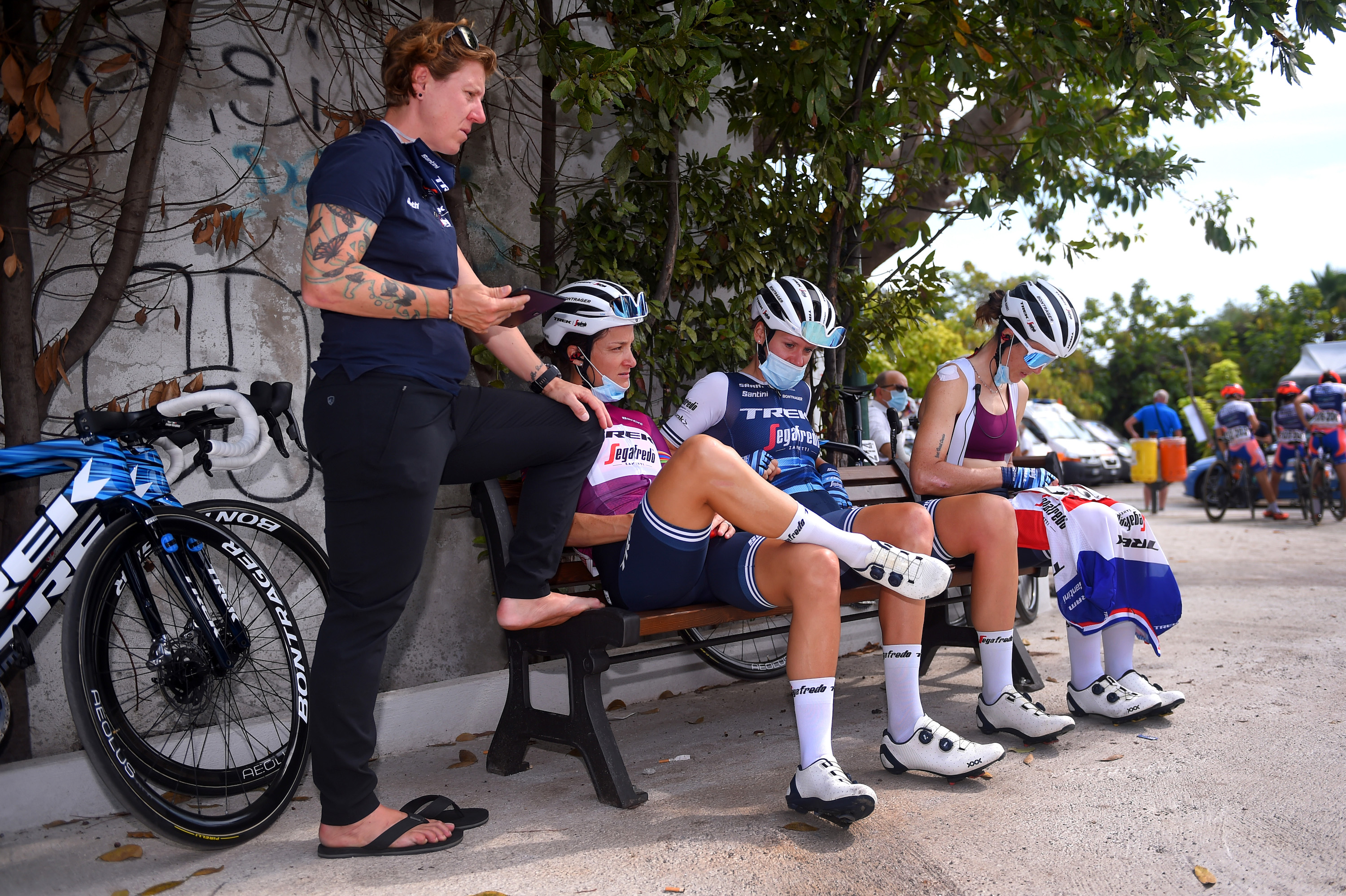
Indeed, the sport has flourished tenfold since the introduction of the revived women's Tour de France in 2022, and over the past three years, women's cycling has seen record numbers in television viewing, in the millions for that event.
Together with branding and support from Zwift and other sponsors, the women's Tour de France and Paris-Roubaix have opened the doors for prospective sponsors, new money, growth in teams and, in some cases, bigger team-rider contracts along with improved infrastructure at the highest level. Deignan recognises that there is still a discrepancy between the top-tier, the ProTeams, and Continental-level teams that need to be addressed.
When one examines the trajectory of her career and popularity as one of the most well-known British athletes, one can trace back her silver medal performance at the Olympic Games in 2012 to her world title victory in 2015. Then, she won the Tour of Flanders and Strade Bianche in 2016 and Liège-Bastogne-Liège in 2020 and we can only speculate how much more she might have benefitted from that spike in her career had it happened during this current wave of progress in women's cycling.
"My financial benefit would be greater, obviously. Other than that, it would probably be the same. Financially, it would have made a huge difference," Deignan says.
"But there is more to life than money, but that doesn't excuse it either, do you know what I mean? I would hate to take that lying down and say, 'It's OK that that happened' because it's not OK that that happened and that is why I challenged it. But it doesn't keep me up at night."
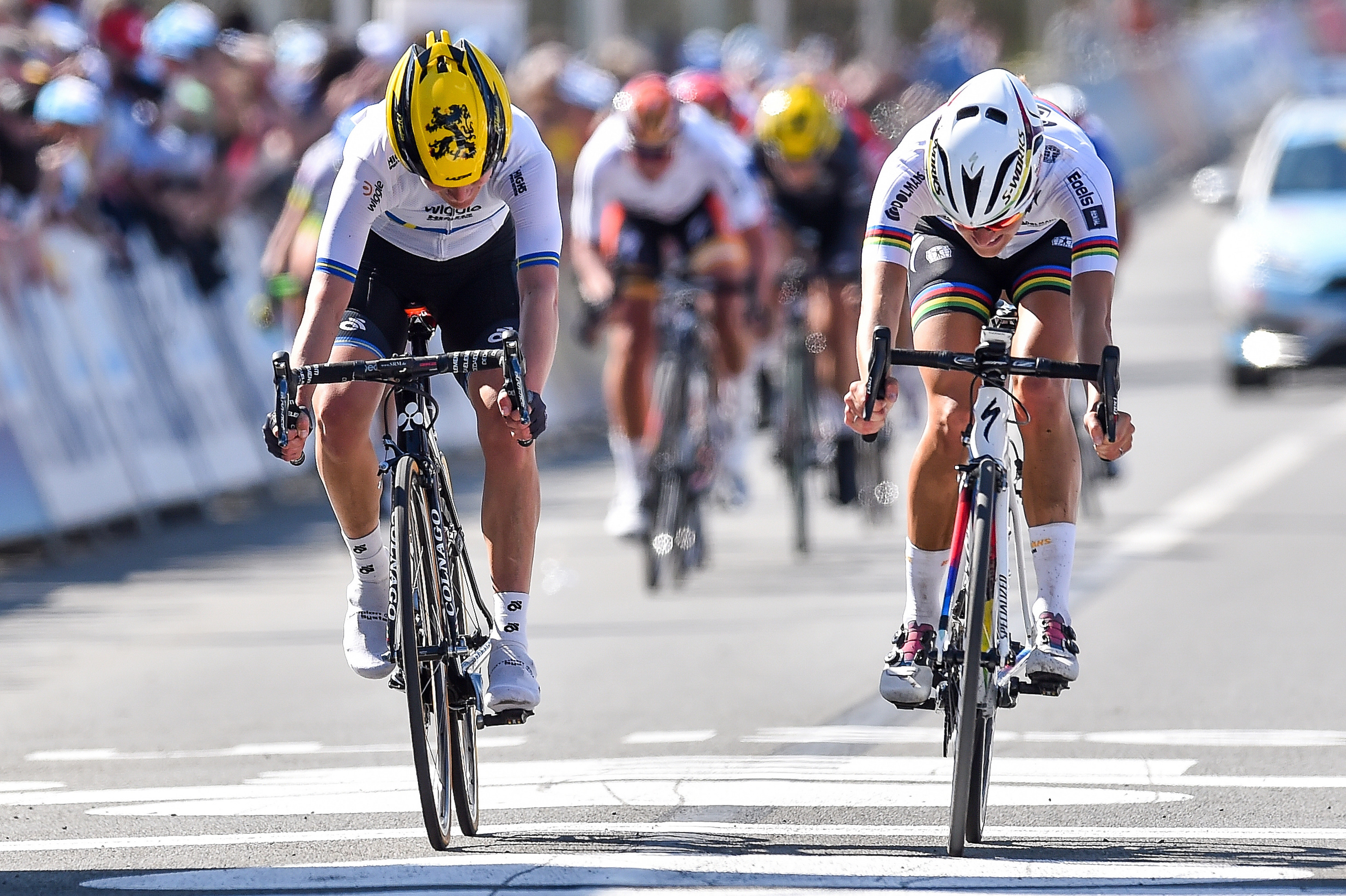
When we think of those who have paved the way for future generations, we think of riders like Kittie Knox, Alfonsina Strada, Elsy Jacobs, Beryl Burton, Marianne Martin, Connie Carpenter-Phinney, Iris Slappendel, Ayesha McGowan, Marion Rousse and Marianne Vos, to name just a few.
Asked if she would rather be the rider who paves the way for future generations or who reaps the benefits of that hard work, Deignan says she has no regrets about dedicating her time and career to putting in the effort to create change for future women in cycling over the years.
"No, I don't think I would change anything because I've seen the best of both worlds. But if you asked me that question when I was five or ten years older, I might have a different point of view. I have also benefitted from the progress," she says.
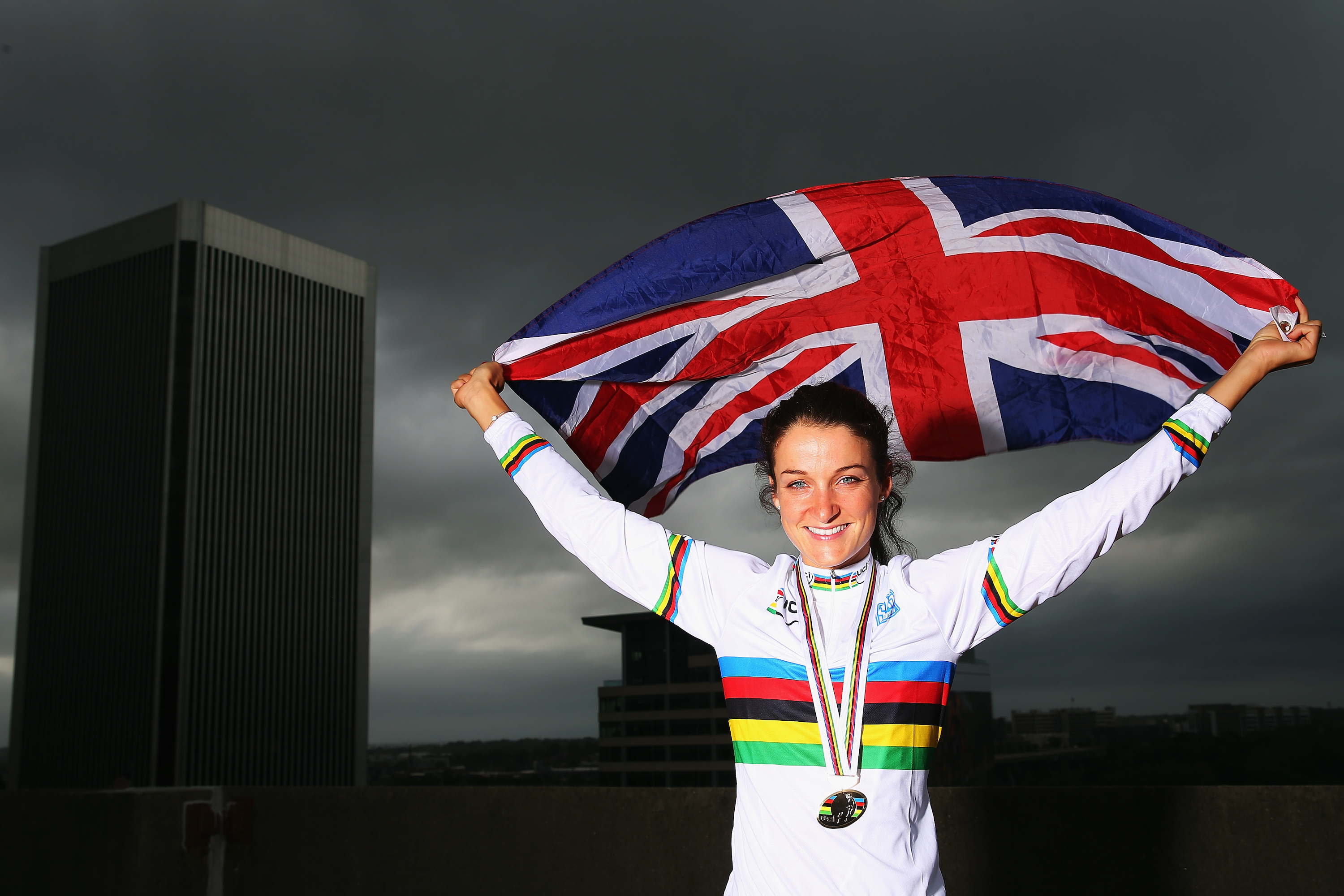
As for Paris-Roubaix, Deignan took to the pavé for one last preview before embarking on the second and final Hell of the North of her career. She says every Roubaix is different and she is happy to spend her last moments in cycling supporting her team – a leader who values the importance of teamwork.
"You need to go into it with people who are willing to do the suicide move into the first section of cobbles, to sacrifice themselves; you need to have a certain amount of riders who are willing to do that. I will fall into that category; position people for each section of cobbles, obviously suffer on each section of cobbles and try and grovel my way back as many times as I can to set up for the next section," Deignan says.
She is most looking forward to experiencing a traditional Paris-Roubaix as part of the Spring Classics and noted the draw of the crowds this time around, compared to her only other experience with this race in a post-pandemic October of 2021.
"It's cool to do it at the right point in the season. When I won, it was in October, and it was the inaugural one, and I think it has settled into its space now as Roubaix in April," she says.
"To be able to do it in the traditional way, and to be here, effectively with nothing to lose and a nice role within the team, I feel excited to soak it all up."
Still a full season ahead, Deignan says she has been enjoying her final foray in professional cycling and has no plans to prolong her career, even after learning that the Tour de France Femmes would begin in Great Britain in 2027, "Nope, don't worry, I'll be in the VIP tent, I will not be prolonging my career," she says.
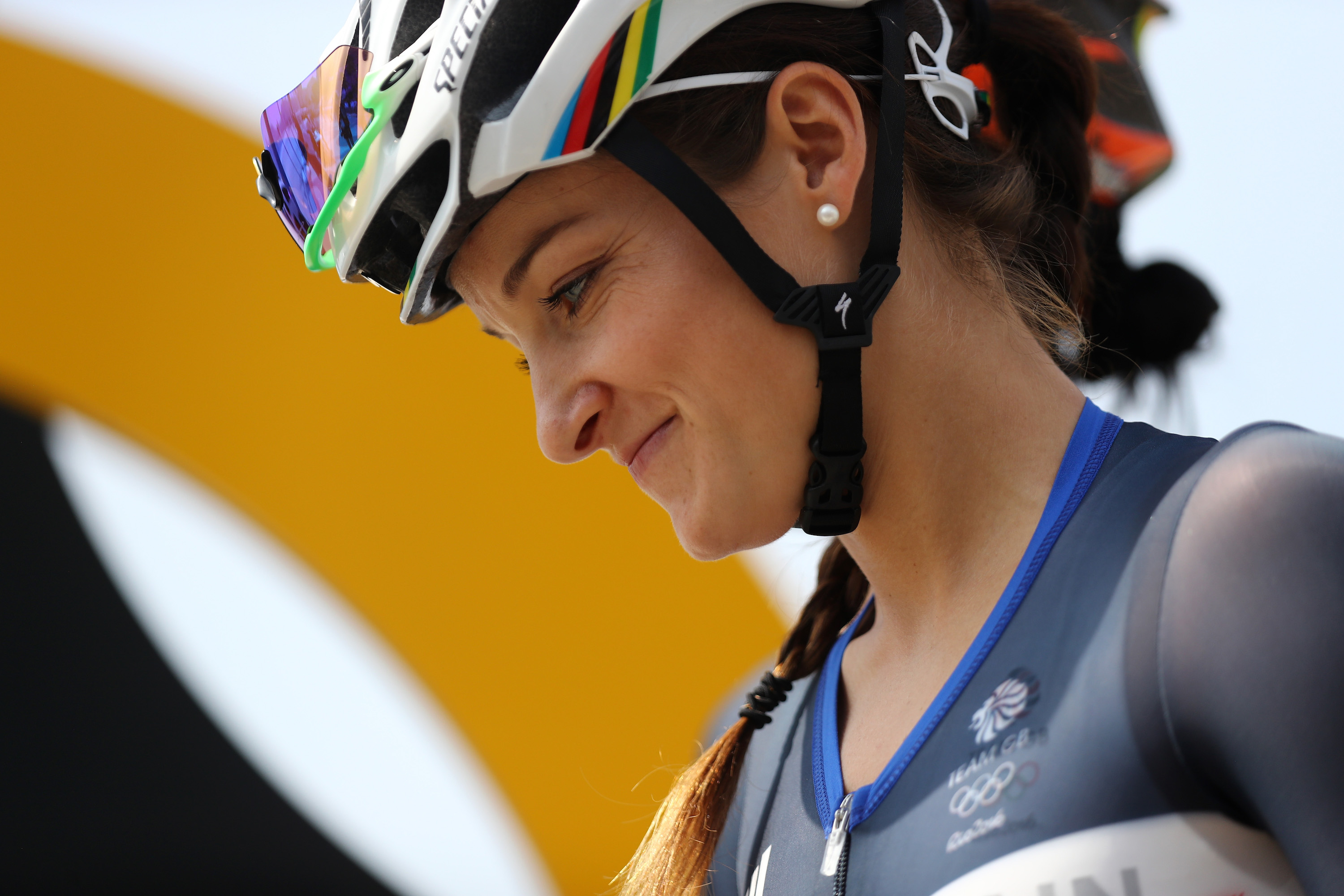
While retirement can seem daunting to some athletes, Deignan says she looks forward to the years ahead when she can spend more time at home with her family: partner and former racer Phillip Deignan and their two young children.
"I feel grateful that I have my family. It must be a lonely, scary challenge if you are at the end of your career and don't have those. Being a mom is a huge identity and time filler; there is no chance of me being bored when I retire, and I'm not going to fall off a cliff," she says
"There will be something in each day that brings me joy, and I'm grateful for that. It's an incredibly hard thing to do to retire and I'm not expecting that it's going to be easy.
"My husband retired when my daughter was born and it came to him; it wasn't his decision and I think it takes longer to process. It's not an easy thing, but I've seen him transition away from professional sport and part of it is that I know what to expect."
When asked if she will stay in cycling on some level, Deignan says she has no concrete plans but is open to exploring her options, finding new purpose, interests, and a sense of identity outside of sport.
"I'm not 100% sure right now. It's hard when you are in the intensity of a season to really decide what you want to do. The clear priority for me is that I want to be at home with my family more," she says.
"I don't know who I am, as not a cyclist. I think I have to be open-minded to what comes next and not put myself in a box now because I just don't know. This has been my identity for the last 20 years. I don't know, is the honest answer."

Kirsten Frattini is the Deputy Editor of Cyclingnews, overseeing the global racing content plan.
Kirsten has a background in Kinesiology and Health Science. She has been involved in cycling from the community and grassroots level to professional cycling's biggest races, reporting on the WorldTour, Spring Classics, Tours de France, World Championships and Olympic Games.
She began her sports journalism career with Cyclingnews as a North American Correspondent in 2006. In 2018, Kirsten became Women's Editor – overseeing the content strategy, race coverage and growth of women's professional cycling – before becoming Deputy Editor in 2023.